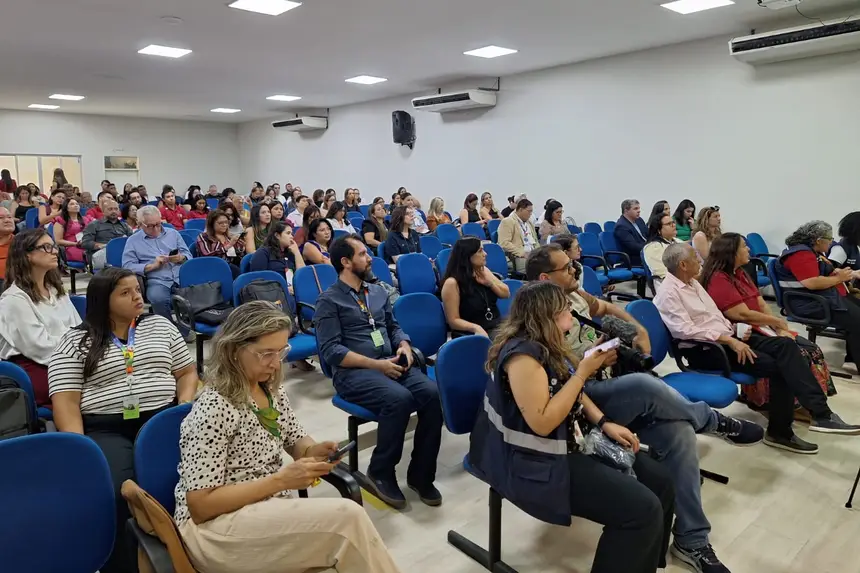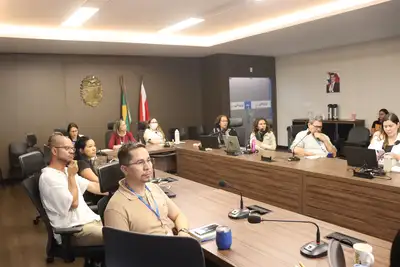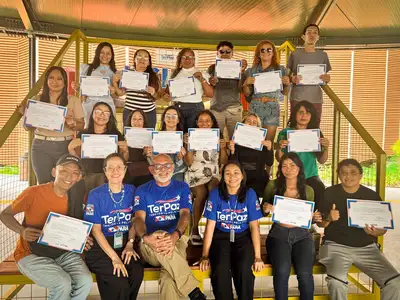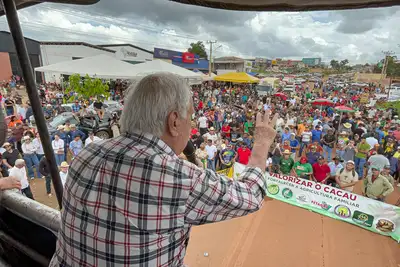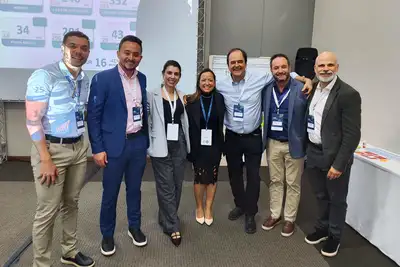Uepa hosts national seminar on Telehealth and Digital SUS
The meeting had as one of its main objectives to present the Digital SUS Program and its integration with the "Now there are Specialists" program, focusing on Pará
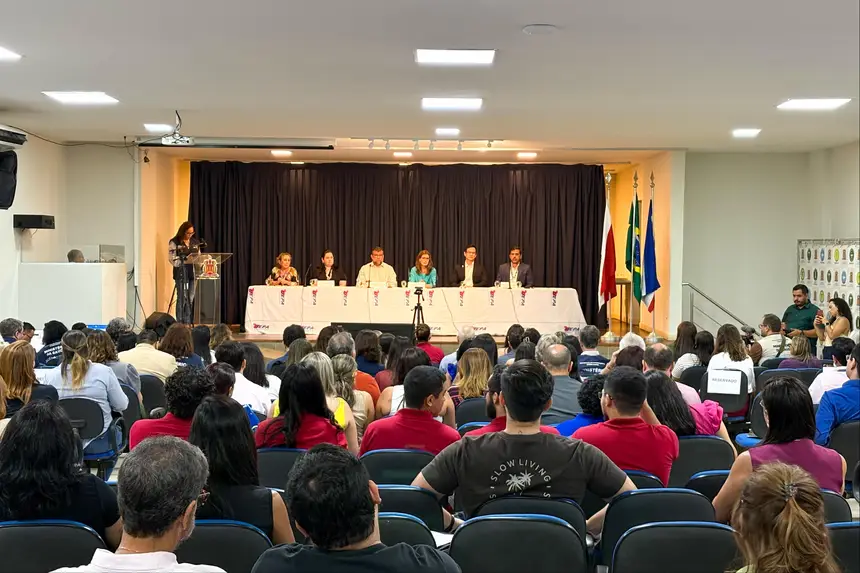
Modernizing health management and increasing access to services through the transformation of the digital environment of the Unified Health System (SUS). With this purpose, the Ministry of Health (MS), through the Secretariat of Information and Digital Health, and the State Health Department (Sespa) promoted, throughout this Wednesday (24), the I Seminar of Pará Digital SUS in the "Now there are Specialists" program, at the Center for Biological and Health Sciences (CCBS/Campus II), of the State University of Pará (Uepa), in Belém.
The meeting aimed to present the Digital SUS Program and its integration with "Now there are Specialists", focusing on Pará, establish commitments among different levels of government and institutional partners, and align strategies for the implementation of the Integrated Digital SUS Clinic, which will bring together multiple telehealth offerings in a unified access flow. The "Now there are Specialists" program is a federal government initiative aimed at reducing the waiting list for specialized medium and high complexity services throughout the country.
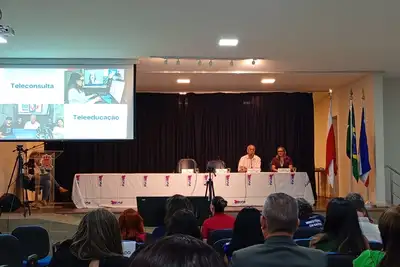
The event featured a debate table, a conversation circle, and various panels with experiences in telehealth in Pará, especially in hard-to-reach territories and the exhibition of works, such as the "Digital Health" project from Uepa/CCBS. Another panel was about Telehealth and Specialties, which addressed the integration of the "Now there are Specialists" program with the Integrated Digital SUS Clinic. Special mention was also made of the special presentation of the PET-Digital Health project: Training and Innovation for the Future of SUS. Uepa selected six projects in this call for the Education through Work for Health/Digital Health Information Program (PET-Digital Health I&SD/2025), an initiative of the Ministry of Health in partnership with the Ministry of Education.
PET-Digital Health - Uepa ranked fourth in the number of approved projects, which will be developed in the capital Belém, and in the municipalities of Ananindeua, Cametá, Marabá, Santarém, and Tucuruí, reflecting the university's commitment to technological innovation, digital inclusion, and strengthening public health in the Amazon.
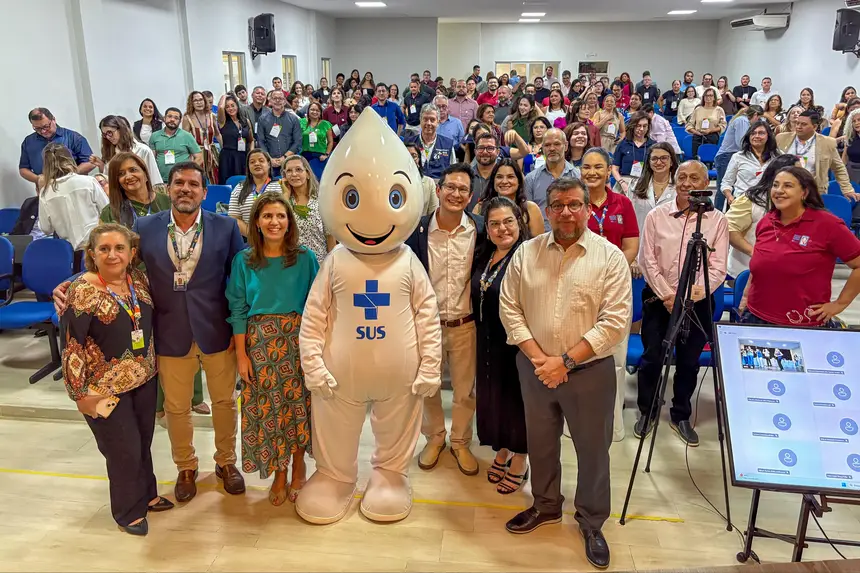
The seminar was attended by the Secretary of Information and Digital Health of Brazil (SEIDIGI/MS), Ana Estela Haddad; the rector of Uepa, Clay Chagas; representatives from the State Health Department (Sespa), Municipal Health Department (Sesma/Belém), Council of Municipal Health Secretaries of Pará, Federal University of Pará (UFPA) among other agencies. Pará was chosen to host the seminar due to its geographical diversity, representation of the 13 Regional Health Departments of the State, and the consolidated offer of Digital Health services in more than 100 municipalities.
Secretary Ana Estela highlighted during the seminar the digital transformation of SUS, the significant performance of Pará in the area of telehealth, and also the state's national prominence, with ten projects approved in PET-Digital Health and over a thousand scholarship holders involved. She emphasized the importance of integrating Telehealth as a strategic part of this process and thanked, through the Ministry of Health, the university and other partners for their joint work. According to Ana Estela, "the goal is to remain motivated to strengthen Digital SUS and make Pará a model for the entire country."
“Pará represents a strategic territory for the advancement of Digital SUS. This seminar marks an important step in the integration of technologies that bring specialists closer and ensure more access and quality in health services for the population,” said Ana Paula Reis, representative of the State Health Department and Director of Policies for Comprehensive Health Care (DPAIS/Sespa).
During the event, Uepa's rector, Clay Chagas, welcomed the attendees and emphasized the importance of understanding health in its entirety, with the university's role going beyond traditional teaching. He highlighted the challenges of Pará, a state marked by contrasts between urbanized areas and remote forest regions, with indigenous villages, for example, which highlights the complexity of public service offerings. The occasion was seen as an opportunity to listen to these realities and reflect on solutions. He also emphasized the importance of integrating technology and health, the service of the Digital Health project, as well as Uepa's advances in health residences.
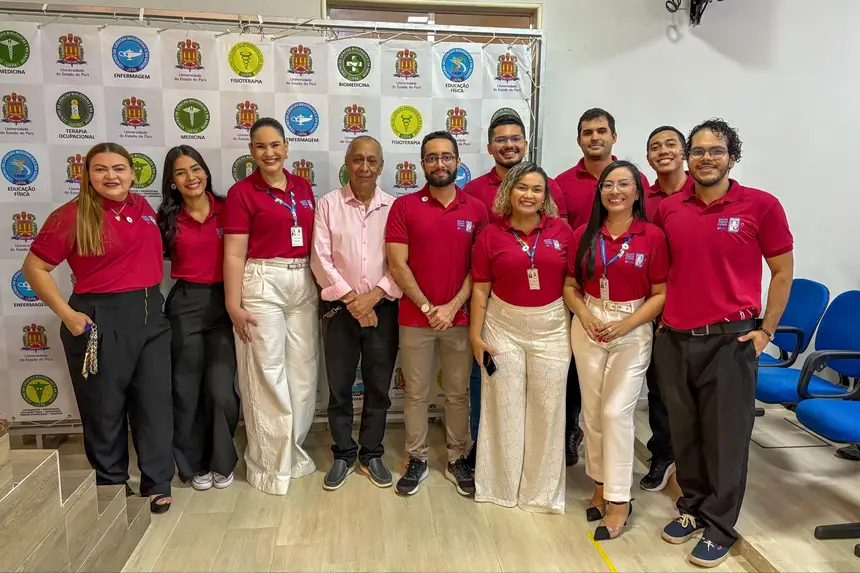
Digital Health of Uepa/CCBS - Launched in 2024, under the Brazil Telehealth Network Program, the Digital Health project of Uepa/CCBS has already conducted about 70 open webinars to the public and more than three thousand consultations with doctors in specialties such as cardiology, neurology, orthopedics, rheumatology, urology, and dermatology. It has also promoted in-person and online training for various municipalities, qualifying professionals in remote locations and improving care for the population of 27 contracted municipalities, including the quilombola community of Boa Vista, in the rural area of Oriximiná. Through university extension, the project includes scholarship students from the health area and also focuses on training professionals through tele-assistance and tele-education, aiming to improve the resolution of Primary Care. To learn more about the project, visit the website https://ccbs.uepa.br/saudedigital/.
For doctor Emanuel Sousa, director of CCBS, technology is already redefining how public health reaches the Brazilian population. "The Digital Health project of Uepa/CCBS is very important for the university because it integrates technology, all areas of health, and assistance to the population of our state, so we have actions related to the quality of care, education, and various areas of knowledge of the institution, so this first seminar is very relevant to expand the university's insertion in this context of public health assistance," he detailed.


